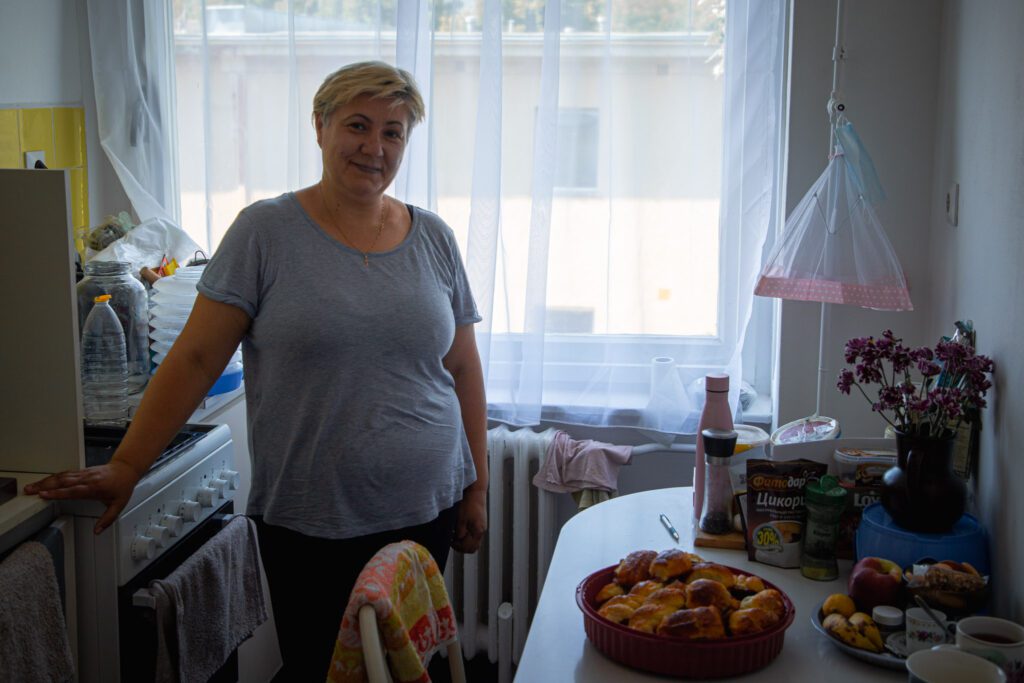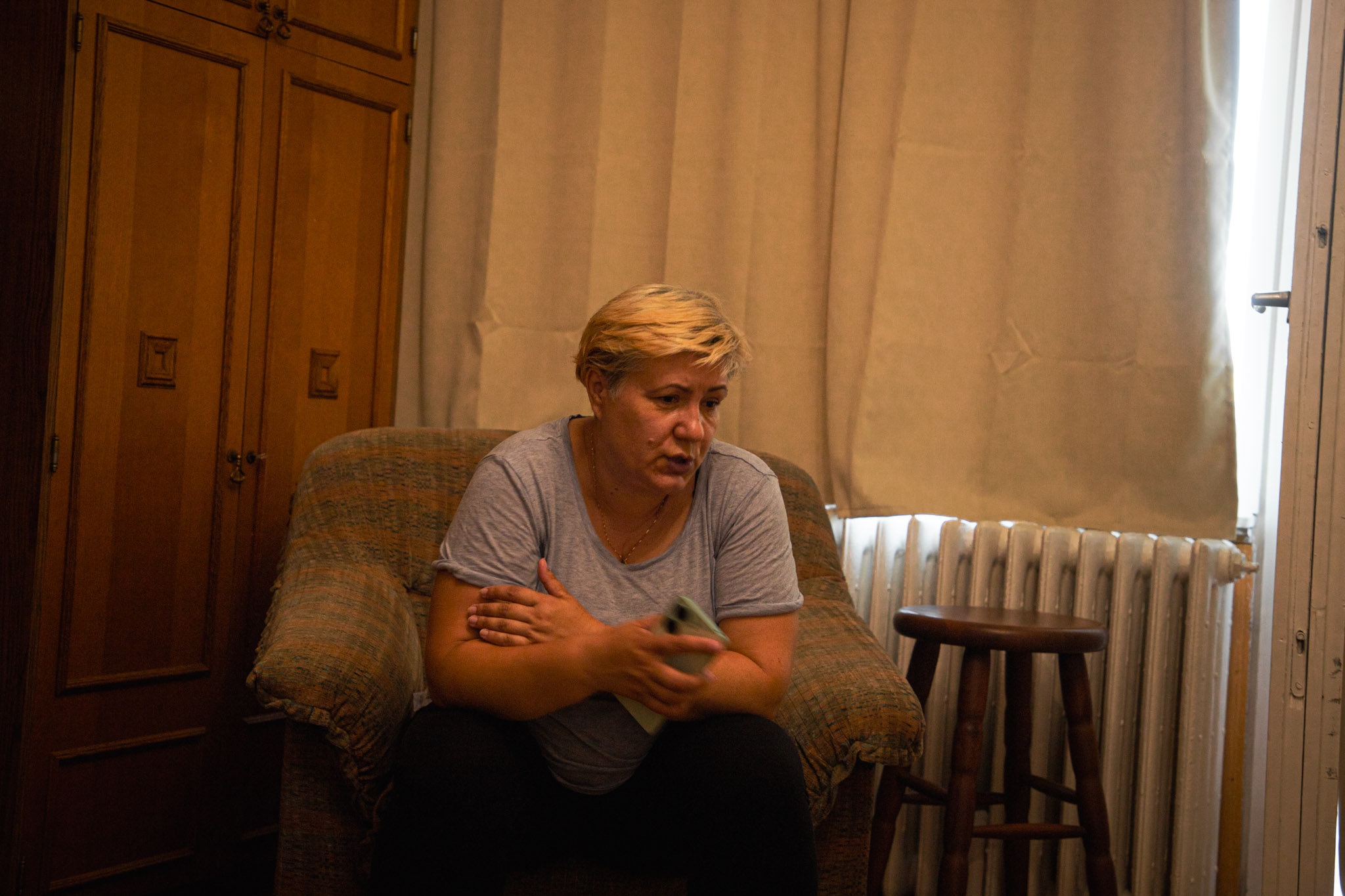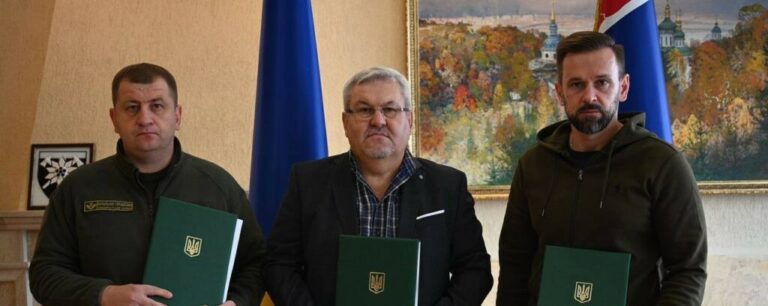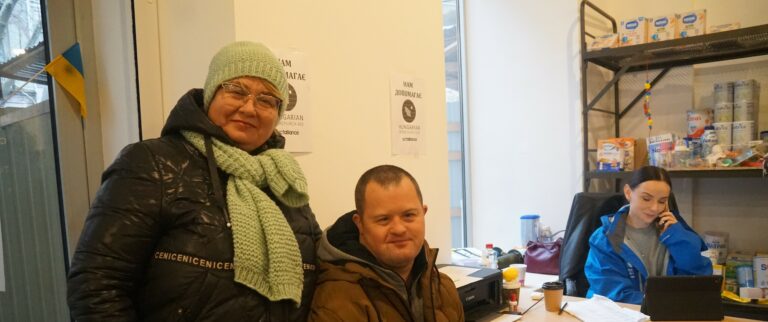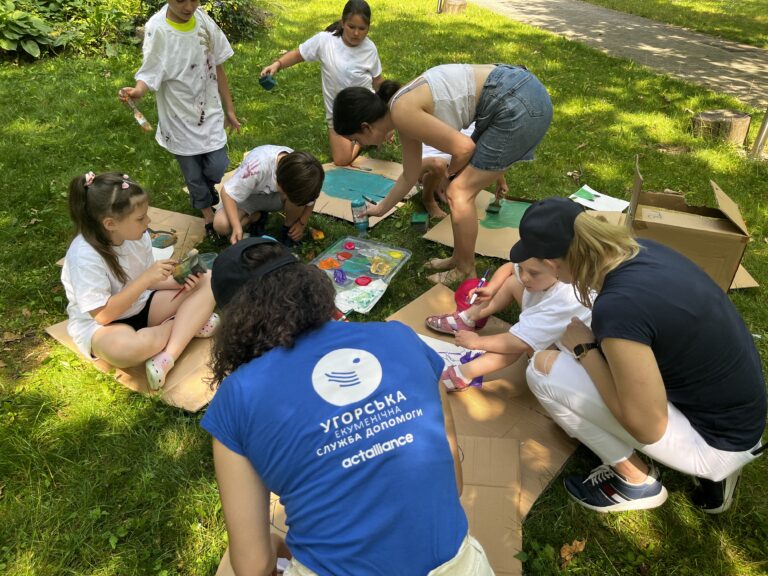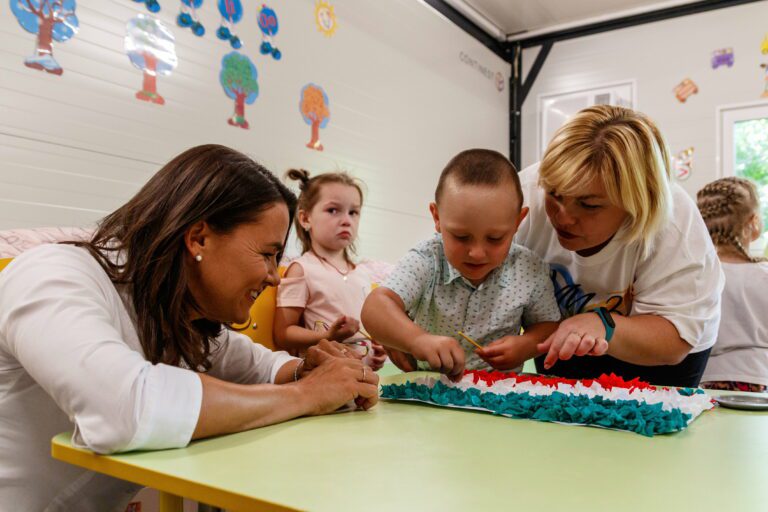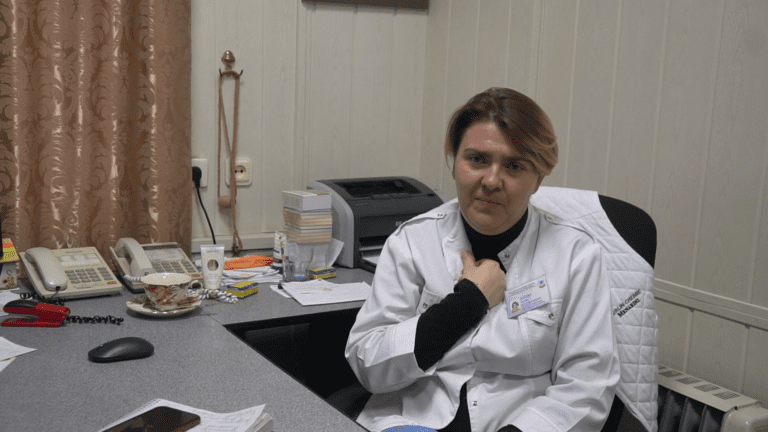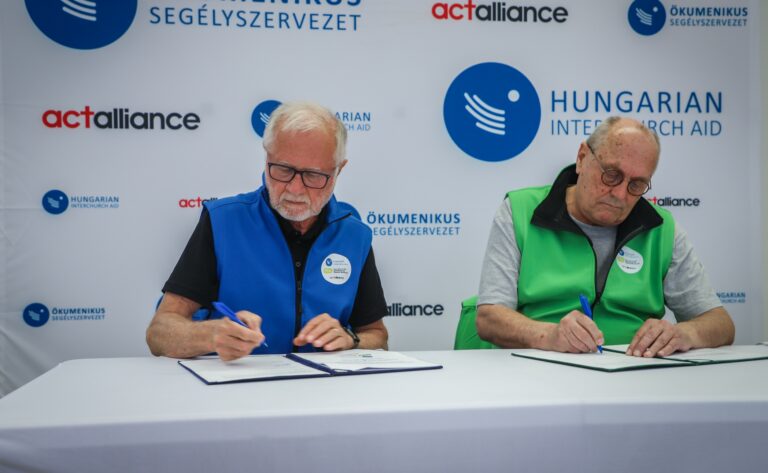From Uncertainty into Stability – Accommodation Support for Refugees
Although many Ukrainian refugees have been living in Hungary for three years, securing adequate housing and a stable livelihood remains one of the biggest challenges for them. For Irina, however, these difficulties seem to have eased recently: alongside several refugees like herself, she has received financial assistance to cover her accommodation, as well as labour-market training over the past six months through a project supported by the European Union and the Ministry of the Interior of Hungary. The project also supports integration and self-sufficiency through other elements, such as language courses and psychosocial and mental-health support. All of these services are provided by Hungarian Interchurch Aid’s (HIA) Support Centre for Ukrainian Refugees, which is located in the centre of Budapest.
Irina arrived in Hungary from Kremenchuk, Ukraine, in July 2022, having been advised to do so by a friend. “When I arrived, I immediately started working in a factory. The factory provided accommodation, but after about five months, my health deteriorated significantly. I had a pre-existing spinal injury, so I was unable to continue working. I had to quit, which meant I lost both my income and my accommodation. It was very difficult to sustain ourselves, especially with a small child.”
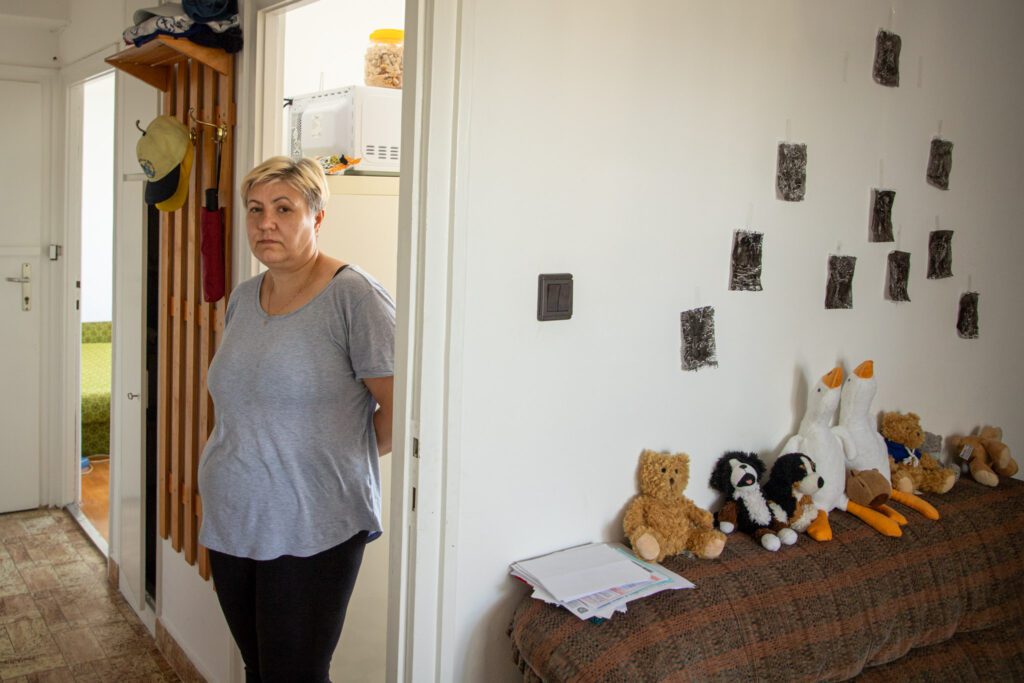

“I was desperate when I arrived and just sat there silently, like a piece of furniture in the corner,” Irina admits, reflecting on her initial difficulties. It was the Ukrainian community she met through her friend that encouraged her to apply to one of the aid organisations. “Hungarian Interchurch Aid provided me and my son, Misha, with free accommodation for a year,” says the refugee mother. Although the refugee shelter provided a temporary solution, they could not stay there long term.
The Asylum, Migration and Integration Fund (AMIF, known as MMIA in Hungarian) project, financed by the Hungarian Ministry of the Interior and the European Union, enabled Irina to start a new life. She was able to move out of the shelter and into her own rented accommodation, and she also took part in labour-market training.
“Thanks to the support, I didn’t have to pay rent for five months, since HIA covered it. During this time, I managed to find a job and save up enough money to pay the rent myself every month.”
Irina currently works as a cleaner at her son’s school, which she considers a great success. Finding the right apartment was not easy, but she received help with that as well.
“Housing is very expensive, especially compared to my cleaner’s salary. Not only are rents high, but even if an apartment is initially advertised at a low price, there are often higher additional costs, such as utilities or communal expenses. If you have children, you already start at a disadvantage with many landlords. My Ukrainian background was often also an issue, but the social workers of HIA helped me a lot with negotiations. The housing allowance enabled me to start building my life here in Hungary.”
She and her son are both working hard to integrate, although he is undoubtedly better at Hungarian than she is. “When we arrived, neither of us spoke any Hungarian. I am learning the language, but it is quite challenging. I deliberately enrolled my son in a Hungarian kindergarten, where they helped him a lot. Now he feels comfortable at school, plays mainly with Hungarian children, and speaks fluently — in fact, he is often the one who helps me to communicate!”
